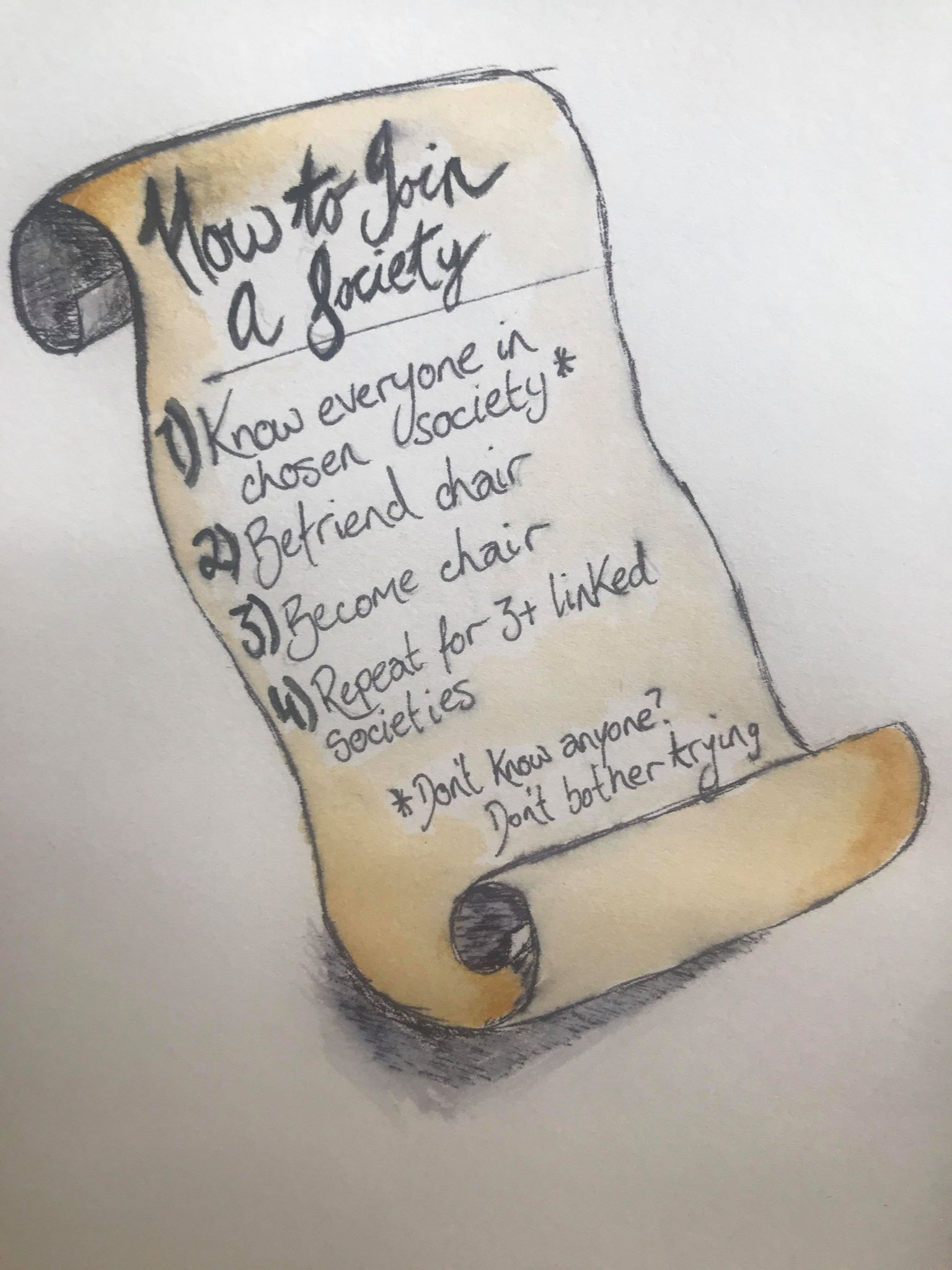Trinity has a reputation for its vibrant societies which boast the promise of new friendships, new skills and a constant source of fun during your time at College. Throughout the year, and in particular during Freshers’ Week, all students alike have the opportunity to get involved with a society. Considering that not every student wishes to be involved, it is still remarkable that the biggest societies seem to be run by the same motivated and similarly connected students within Trinity.
There is no doubt that Trinity has a reputation for being exclusive and elitist, though many students would argue this is a redundant reputation. Even so within Trinity’s own walls, there is another layer of exclusivity. Going to Trinity isn’t always enough to get you on the society ladder.
While there are many students who have no interest in extracurricular activities, there are many who do and even more who never get the chance due to the rife cronyism in Trinity. It takes a person with great confidence to break into a group that may give the impression they have been friends for decades but it’s easy if you already know someone who can help you on the society ladder.
For students who do stick around and put in the hard work they are rewarded with the opportunity of getting a place on a committee. Trinity’s societies do not merely organise parties or nights out, but have played host to some extraordinary people from international diplomats to world famous celebrities. So maybe the incredible effort it takes to get into a society helps to foster a growth of loyalty, therein creating a workforce who are willing and able to organise a society to achieve these impressive accomplishments.
Even so, there is the problem of this not only excluding students but fuelling Trinity’s elitist reputation. In the coming academic year, the committee for the Theological Society seems to largely attribute its membership to the Phil, if the committee is anything to go by. The Secretary is a former Phil Schools Convenor while the Treasurer is a former Secretary of the Phil. Similarly, the Theo’s Publicity Officer (PRO), Records, Librarians and OCMs (Ordinary Committee Members) have all been active members of the Phil with many holding Council positions. The same has been seen between the Hist, the Society of International Affairs, and the Politics Society, with a huge overlap of committee members.
For many students, this may be a point of frustration as they struggle to get involved in what can seem like a tight group with impenetrable walls, especially when that tight group dominates a society that already is its own clique. This may stand to benefit the society. With the committee members’ wealth of experience, they may be able to boost the Theo, which has not reflected their status as one of Trinity’s oldest societies in its reputation or activity level.
But it also isolates the students who may hold excellent potential but lack the confidence to just rock up to events because they’re “only a first year” or are worried because they are no longer a first year. This is the catch 22 of society participation, the issue of cronyism can translate to bettering a society with experienced members who have already worked on a brand, but it cements the experience of running a society to one group as responsibilities are passed through the group, with a large number of students failing to break in, or give up trying.
As committees are elected in Trinity by the members of the society, it would be nearly impossible to monitor or control this without seriously infringing on the societies’ right to run themselves as they see fit. Societies on campus do hold nights out and run socials before talks and debates or after screenings or plays, so there is the fact that students do have every opportunity. But it is still intimidating to make that first step to getting involved, in particular, as can be seen with the Theo Soc it might just be who you know that can help you get in. All of this begs the question, is societal participation and organisation inextricable from cronyism? And how much does it hinder or help a society to succeed?






